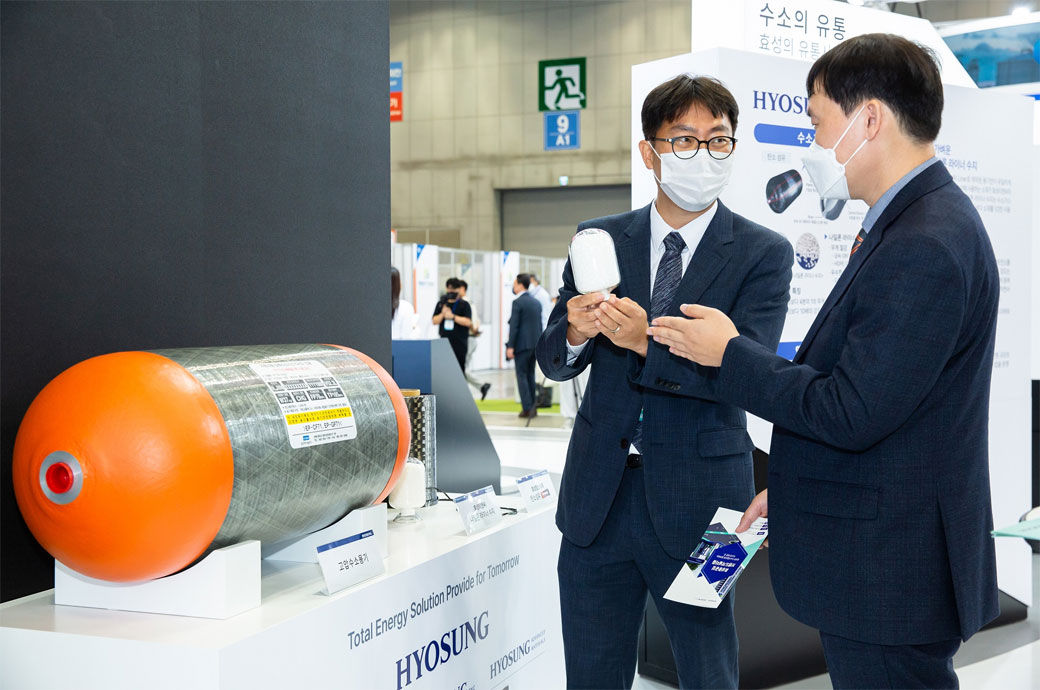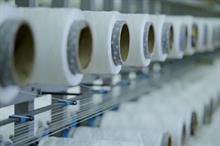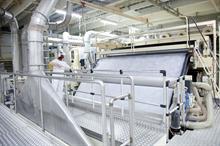
A liner is a core component required to store hydrogen in the fuel tank's internal container and prevent leakage. The nylon liner material developed by Hyosung TNC is 70 per cent lighter than metal and 50 per cent lighter than HDPE and gas barrier property that prevents leakage of hydrogen gas is also 30 per cent higher than metal and 50 per cent higher than HDPE.
Metal liner is heavy and has a high risk of brittleness when exposed to hydrogen for a long period of time, whereas nylon liner has low hydrogen absorption and air permeability, so there is no risk of brittleness. HDPE liners are used as high-pressure containers at 400 bar levels, but cannot withstand the 700 bar pressure required by typical hydrogen electric vehicles.
In addition, the hydrogen container liner must be able to withstand rapidly changing temperature fluctuation caused by frequent charging and discharging of hydrogen and the nylon liner has excellent impact resistance against it from -40 to 85 degrees celsius.
Hyosung TNC's nylon-applied hydrogen container passed the hydrogen container international quality standard (UN/ECE R134) in June, and has been equipped with function, quality and technical perfection as a liner material. It is also planned to conduct commercial tests in cooperation with hydrogen fuel tank manufacturers and automakers.
Hyosung TNC is planning to expand the application of nylon as a liner material from tube trailers of commercial trucks to CNG and hydrogen vessels sailing the seas around the world, such as Antarctica and the Equator, by enhancing the impact and heat resistance range from -60 to 90 degrees Celsius. In addition, as Hyosung TNC developed the world's first recycled nylon fiber technology from recycled fishing nets discarded in the sea, it plans to expand the eco-friendly plastic material market by applying recycled nylon to a liner material in the future.
“Hyosung TNC’s development of nylon liner material demonstrates, even in the textile industry, which has been regarded as a declining industry, the innovation that transforms it into a key material for the high-tech hydrogen industry, can happen if it’s supported by technology. We will contribute to the development of the future eco-friendly energy industry with the technology of materials and textiles,” chairman Cho Hyun-Joon, said.
Fibre2Fashion News Desk (RR)

